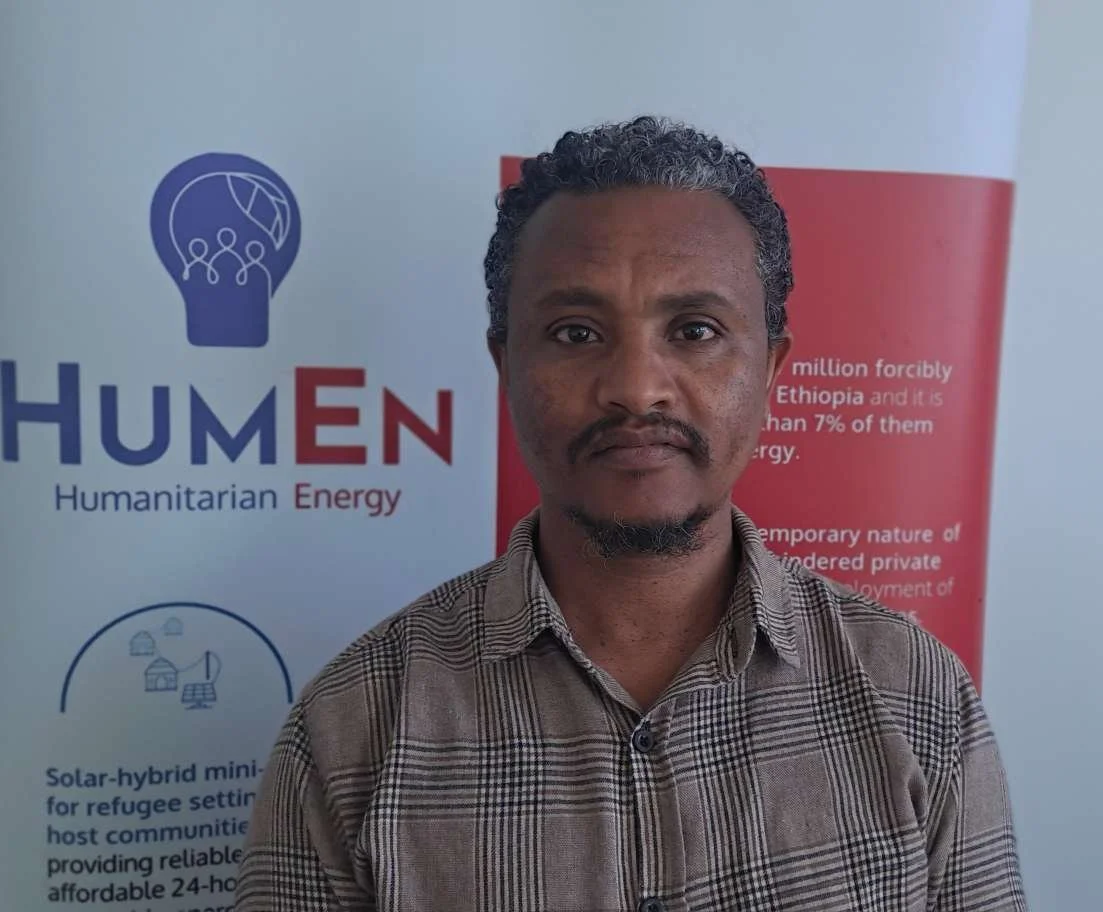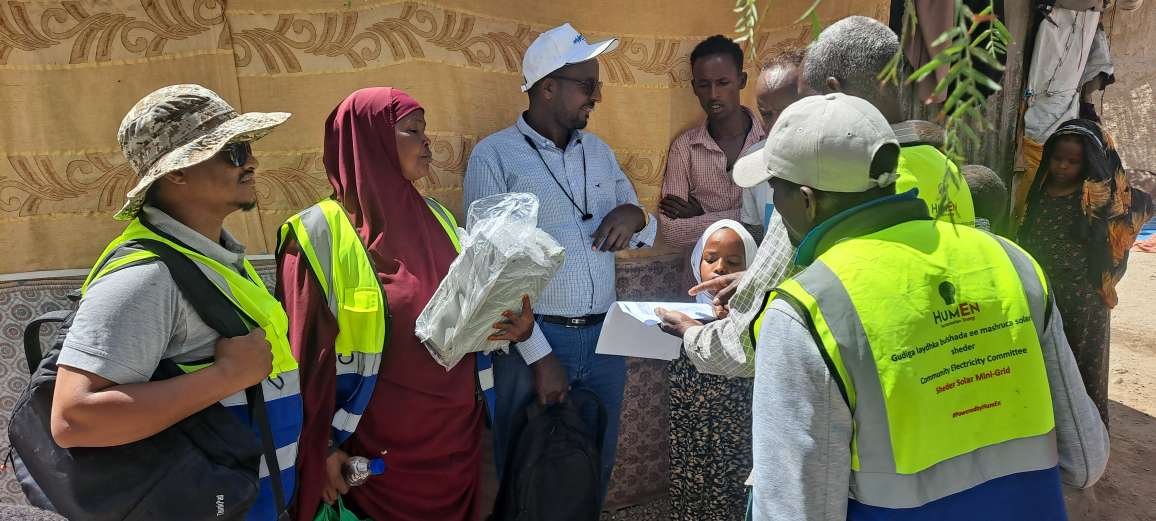Desalegn Getaneh Woldemariam is the Managing Director, Humanitarian Energy (HumEn)
Why do you personally work in renewable energy?
I am from Addis Ababa, Ethiopia and have been working in the renewable energy space for over 15 years. One of the reasons I am personally interested in the sector is to contribute to the global and national efforts to combat the impact of climate change. Working in the sector, I have witnessed the impact of climate change through frequent droughts, unpredictable weather, and heavy and/or less rainfall, resulting in conflict over scarce resources. For me, engaging in the renewable energy sector is synonymous with promoting peace.
How does your company engage with local communities?
We have developed a detailed community engagement plan with the objectives of informing communities about the project and the type of services we provide, increasing the visibility of the company, the program and shareholders, and its associated services.
Once we identify our target audience with the community, there are many ways Humanitarian Energy engages the communities, including but not limited to focus groups, formal and informal discussions, paper-based surveys (when needed), and one-on-one interviews (key informant interviews). We use a standard list of questions to collect input and synthesize the input gathered in a consistent and meaningful way.
Tell us about a recent or upcoming project. What is most compelling about it?
Our main current project is the 254KWp mini-grid in the Somali Region, Fanfen zone, Awbere Wereda, Sheder Kebele. There are three more projects in the pipeline in the same region, Liben Zone, with an installed capacity of over 2.1MWp.
The first time I was introduced to the Sheder community was back in 2010 when we relocated refugees from Lefisa Reception Center to Sheder refugee camp. I was a member of a task force assigned to this task. Since then, I have served the Sheder community in different capacities, from a field coordinator based in the camps to a managing director of my previous organization. It is now a privilege for me to join Humanitarian Energy and contribute to the efforts of providing access to clean and sustainable energy for the Sheder community who need the service very badly.
What makes all of our projects compelling is the community we serve. We are serving displaced communities who have little or no access to clean energy.
How can/do “Peace RECs” support your project development?
Despite our efforts, there are still energy needs in the community that will not be covered with a mini-grid. Our target households with this specific project are refugee households. To create a healthy coexistence and improve harmony of the refugee and host community, we planned to have a project that serves both communities together. The solar street light project is planned to serve both communities to eventually foster security within the community.
What impacts does renewable energy have in the communities where you work?
There are several impacts we have observed that we want to highlight here:
Improved access to energy
Improved health by displacing the use of kerosene lamps/lanterns
Improved students’ school performance through studying at night and doing homework
Greater adult education through the opening of evening schools
Improved economic activity and livelihood opportunities



